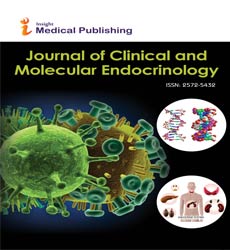Abstract
An Assessment of Source and dosedependent Diabetes Ameliorating activity of Ethanolic Extract of Nigella sativa on Alloxan-Induced Diabetic Rat Model
Metabolic disorder diabetes results from an alteration of the secretion or action of insulin. Nigella sativa is a traditionally used specimen since ancient times. We aimed to investigate the hypoglycemic potential of ethanolic extract of Nigella sativa seed powder solution both in a dose and source-dependent manner as well as to fathom out its safety profile so that this plant can be used to ameliorate diabetes. Diabetes was induced in the rat model via intraperitoneal injection of alloxan (150 mg/kg). Ethanolic extract of T. Nigella sativa was administered to rats’ belonged to different groups. Blood glucose levels were assessed periodically and the safety profiles were evaluated through assessment of SGOT, SGPT, creatinine, and lipid profiles after sacrificing the animals. It has been evidenced that Nigella sativa possesses anti-diabetic activity. Furthermore, the extract is capable of reversing the disturbed pathological state towards a healthy status. Besides, these therapeutic consequences possess dose-dependent potentiality (p>0.05), further a noteworthy source dependent (p> 0.01) response were experienced. It may confer that the inconsistency associated with the remedial impacts between 2 same doses belonged to two distinct sources are due to accuracy of lab-based preparation, geographic area of cultivation, and also the season of collection. Apart from that, the visual and statistical inspections have evidence that the medium and the high dose are imparting almost indistinguishable therapeutic effects. Presumably, the reason lies beneath the receptor saturation issue.
Author(s): Dilruba Akter, Chandni Akter Rokeya, Md. Rafat Tahsin, Ehfazul Haque , Arifa Sultana , Shaila Kabir, Abu Asad Choudhury , Jakir Ahmed Chowdhury , Md. Shah Amran
Abstract | Full-Text | PDF
Share this

Google scholar citation report
Citations : 120
Journal of Clinical and Molecular Endocrinology received 120 citations as per google scholar report
Abstracted/Indexed in
- Google Scholar
- China National Knowledge Infrastructure (CNKI)
- Publons
- Secret Search Engine Labs
Open Access Journals
- Aquaculture & Veterinary Science
- Chemistry & Chemical Sciences
- Clinical Sciences
- Engineering
- General Science
- Genetics & Molecular Biology
- Health Care & Nursing
- Immunology & Microbiology
- Materials Science
- Mathematics & Physics
- Medical Sciences
- Neurology & Psychiatry
- Oncology & Cancer Science
- Pharmaceutical Sciences

